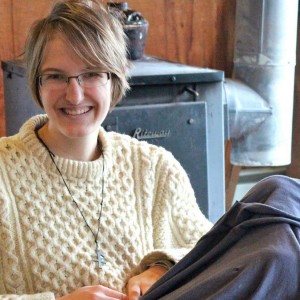(This is part of a series written by Millennials who have either left or stuck with the church. If you are a Millennial and would like to submit your work for publication, you will earn $100. Here is the link. To read more stories by Millennials search Millennial Exodus. If you would like to fund our research among emerging adults, click here.)
Here is Kristin’s Story entitled, “I could leave.”
Why dig beneath the shallow surface of my mind when I know I will be looked at and treated differently due to my past and present struggles?
Why choose to put a label on myself when I know I will be thrown into the same category of hypocritical Christians to anyone that asks about my religious affiliation?
 Why be a part of an institution that has strayed so far from its original intent due to power struggle and misguided missions of its leaders?
Why be a part of an institution that has strayed so far from its original intent due to power struggle and misguided missions of its leaders?
Why surround myself with people every Sunday when I know many will stab my back by Monday?
Why do I put myself through it? I could have left the church years ago. No one is making me stay. In fact, looking at my peers it seems like that is the easier way to go.
But instead I pour myself out, lay myself down, and open up my soul to this so-called “church.” I could leave. Why stay?
Jesus.
You may call this a Sunday school answer, but its not Sunday school I’m after.
I’m after Jesus’ own heart. If he wasn’t still in the church I would be long gone. The one who knows my future, my present, and my past. The God whose very name covers me with a blanket of forgiveness and love. The authentic, organic fire within my soul.
I could choose to leave the church. In fact, it would cause me less pain if I abandoned these modern-day Pharisees for good. The people who make up the church are sick with sin. No one can be trusted. But I will continue to be vulnerable through it all with the people who are just as broken as me searching for the Ultimate Truth. In the midst of all this brokenness, one fact remains:
Jesus is still there and He isn’t going anywhere.
So I’m not either.
 Kristin Allen is a 22 year old from central Illinois serving as a Director of Christian Education in Escanaba, Michigan to complete her degree from Concordia University Chicago. She is happily engaged to her high school sweetheart. If it involves family, music, volleyball, or pizza – count her in.
Kristin Allen is a 22 year old from central Illinois serving as a Director of Christian Education in Escanaba, Michigan to complete her degree from Concordia University Chicago. She is happily engaged to her high school sweetheart. If it involves family, music, volleyball, or pizza – count her in.







 Abby Allen is a full-time physical therapist from Springfield, IL. She spends her days doing her best to be Jesus’ hands and feet, facilitating healing of all her patients each day. In her free time, she enjoys writing inspirational and encouraging blog posts, which are written purely from whatever may be weighing on her heart at that time.
Abby Allen is a full-time physical therapist from Springfield, IL. She spends her days doing her best to be Jesus’ hands and feet, facilitating healing of all her patients each day. In her free time, she enjoys writing inspirational and encouraging blog posts, which are written purely from whatever may be weighing on her heart at that time.

 Emerging Adults are not the only ones
Emerging Adults are not the only ones 
 behind. I completely agree with their statement that “the Dones and the almost Dones are the strongest bridge to the Nones.” (137)
behind. I completely agree with their statement that “the Dones and the almost Dones are the strongest bridge to the Nones.” (137)

 Time Magazine recently featured an article about Millennials examining how they parent. The transition of Millennials as lazy, narcissistic children into parents is happening quickly (The words lazy and narcissistic came from a previous Time article). According to Time, “Millennial parents number more than 22 million in the U.S., with about 9,000 babies born to them each day. This growing cohort of parents is digitally native, ethnically diverse, late-marrying, and less bound by traditional gender roles than any generation before it.” (
Time Magazine recently featured an article about Millennials examining how they parent. The transition of Millennials as lazy, narcissistic children into parents is happening quickly (The words lazy and narcissistic came from a previous Time article). According to Time, “Millennial parents number more than 22 million in the U.S., with about 9,000 babies born to them each day. This growing cohort of parents is digitally native, ethnically diverse, late-marrying, and less bound by traditional gender roles than any generation before it.” (


 He had asked his son to refrain from tattoos until he was twenty-one. The father’s reasoning included the under-developed brain of emerging adults,
He had asked his son to refrain from tattoos until he was twenty-one. The father’s reasoning included the under-developed brain of emerging adults, 
